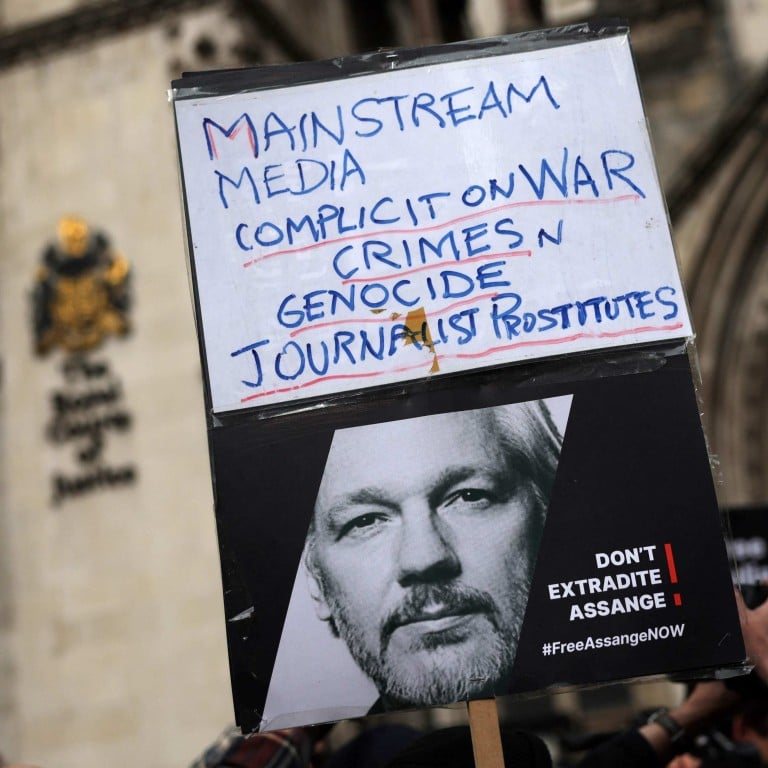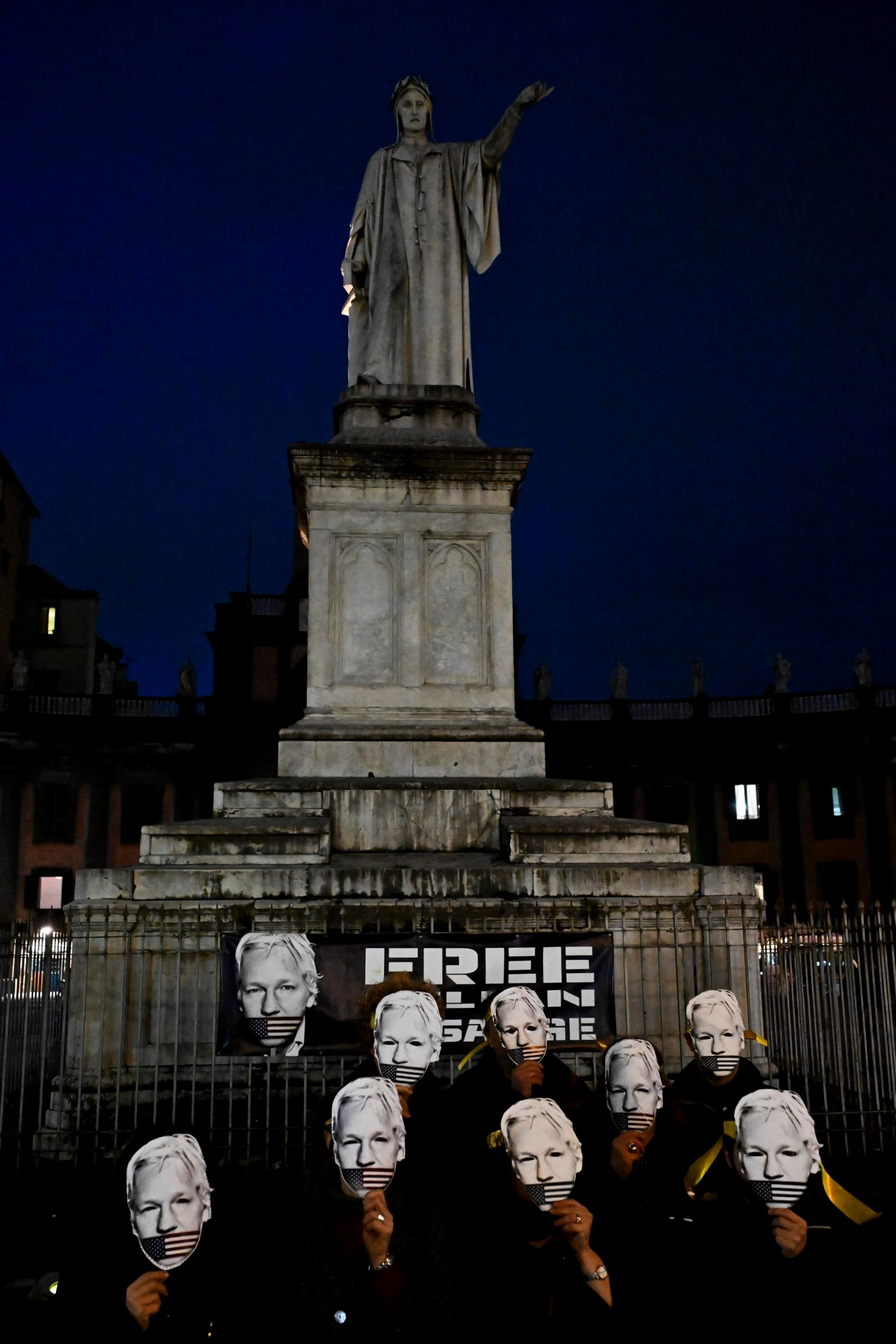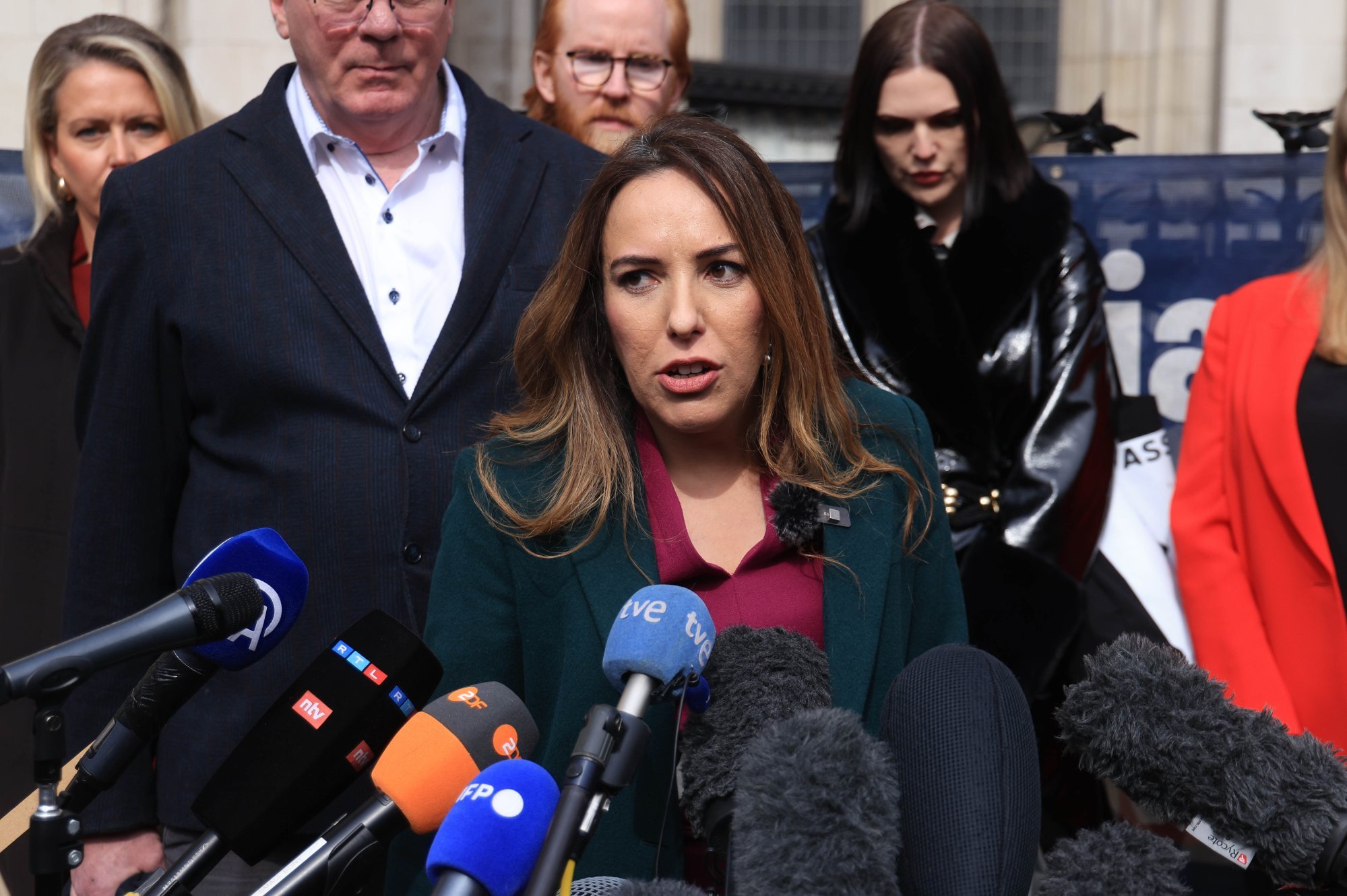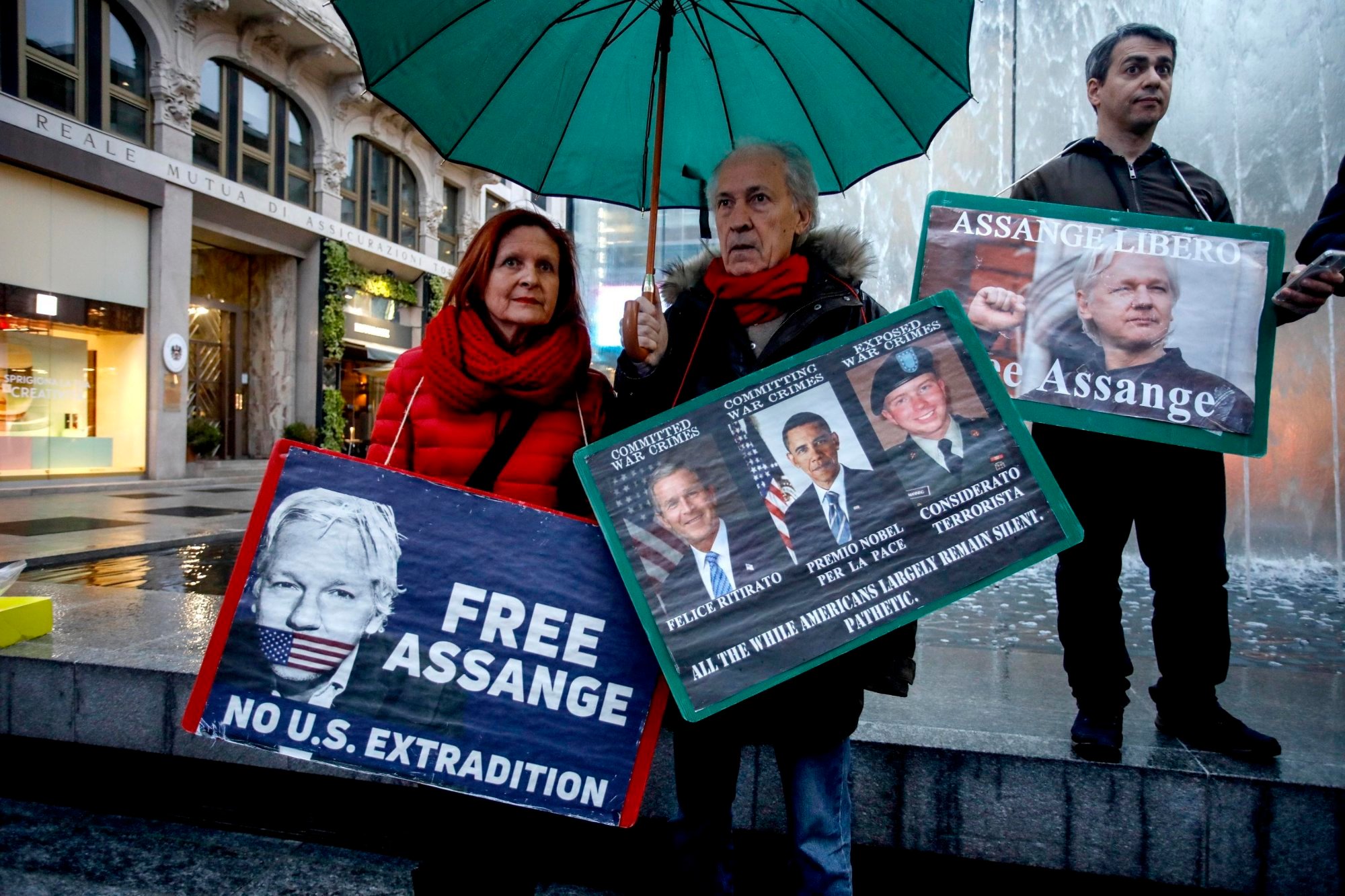
Russia calls UK courts a ‘farce’ over WikiLeaks founder Julian Assange extradition case
- Judges in London delayed a decision on Assange’s last-ditch extradition appeal bid amid concerns he could face death penalty in the US
- ‘The entire justice system of the [United] Kingdom has become a farce – a mockery in front of the world,’ said Russia’s foreign ministry
Russia called Britain’s judiciary a “farce” on Tuesday over its treatment of WikiLeaks founder Julian Assange, who must wait weeks to learn if he can appeal against extradition to the United States.

“The entire justice system of the [United] Kingdom has become a farce – a mockery in front of the world,” Russian Foreign Ministry spokeswoman Maria Zakharova said on Telegram.
She said Assange had “devoted his life to uncovering the secrets of a conglomerate of British and American intelligence agencies” and had become a “victim” of the UK legal system.
The US has indicted Assange multiple times between 2018 and 2020 on charges criticised by campaign groups, including Amnesty International and Reporters Without Borders.
UK court delays decision on WikiLeaks founder’s last-ditch extradition appeal
High Court judges in London said they would not grant a new appeal unless US authorities give further assurances within three weeks about what will happen to him. The ruling means the legal saga, which has dragged on for more than a decade, will continue and Assange will remain inside London’s high-security Belmarsh Prison, where he has spent the past five years.
Judges Victoria Sharp and Jeremy Johnson said the US must guarantee that Assange, who is Australian, “is afforded the same First Amendment protections as a United States citizen, and that the death penalty is not imposed”.
The judges said that if the US files new assurances, “we will give the parties an opportunity to make further submissions before we make a final decision on the application for leave to appeal”. The judges said a hearing will be held on May 20 if the US makes those submissions.
The US Justice Department declined to comment on Tuesday.

Assange’s wife Stella Assange said the WikiLeaks founder “is being persecuted because he exposed the true cost of war in human lives”.
“The Biden administration should not issue assurances. They should drop this shameful case, which should never have been brought,” she said outside the High Court in London.
The ruling follows a two-day hearing in the High Court in February, where Assange’s lawyer Edward Fitzgerald said American authorities were seeking to punish him for WikiLeaks’ “exposure of criminality on the part of the US government on an unprecedented scale”, including torture and killings.
UK court to rule on whether WikiLeaks’ Assange can challenge extradition to US
The US government said Assange’s actions went beyond journalism by soliciting, stealing and indiscriminately publishing classified government documents that endangered many people, including Iraqis and Afghans who had helped US forces.
The judges rejected six of Assange’s nine grounds of appeal, including the allegation that his prosecution is political. They said that while Assange “acted out of political conviction … it does not follow however that the request for his extradition is made on account of his political views”.
The judges also said Assange could not appeal based on allegations, made by his lawyers, that the CIA developed plans to kidnap or kill Assange during the years he spent holed up in the Ecuadorian embassy in London, to prevent him from trying to flee.
The judges said “plainly, these are allegations of the utmost seriousness,” but concluded they had no bearing on the extradition request.
They accepted three grounds of appeal: the threat to Assange’s freedom of speech, Assange’s claim that he faces disadvantage because he is not a US citizen, and the risk he could receive the death penalty.

US authorities have promised Assange would not receive capital punishment, but the judges said that “nothing in the existing assurance explicitly prevents the imposition of the death penalty”.
Jennifer Robinson, one of Assange’s lawyers, said that “even if we receive the assurances, we’re not confident we can rely on them”.
Assange, 52, a computer expert, has been indicted in the US on charges over WikiLeaks’ publication in 2010 of hundreds of thousands of classified documents.
US prosecutors say Assange, a computer expert, conspired with US army intelligence analyst Chelsea Manning to hack into a Pentagon computer and release secret diplomatic cables and military files on the wars in Iraq and Afghanistan.
He faces 17 counts under the Espionage Act and one charge of computer misuse. If convicted, his lawyers say he could receive a prison term of up to 175 years, though American authorities have said any sentence is likely to be much lower.
WikiLeaks’ Assange too ill to attend last-ditch hearing against US extradition
The relationship between Assange and his hosts eventually soured, and he was evicted from the embassy in April 2019. British police immediately arrested and imprisoned him for breaching bail in 2012. Sweden dropped the sex crimes investigations in November 2019 because so much time had elapsed.
A UK district court judge rejected the US extradition request in 2021 on the grounds that Assange was likely to kill himself if held under harsh US prison conditions. Higher courts overturned that decision after getting assurances from the US about his treatment. The British government signed an extradition order in June 2022.

.png?itok=arIb17P0)